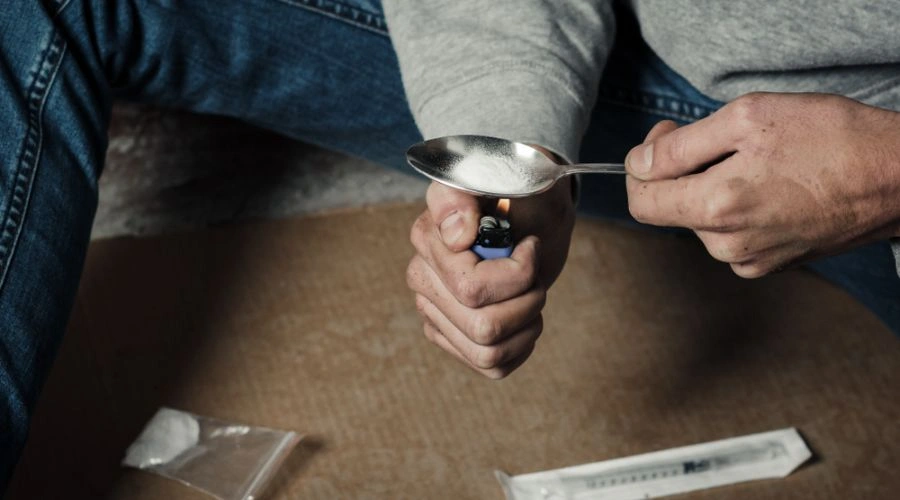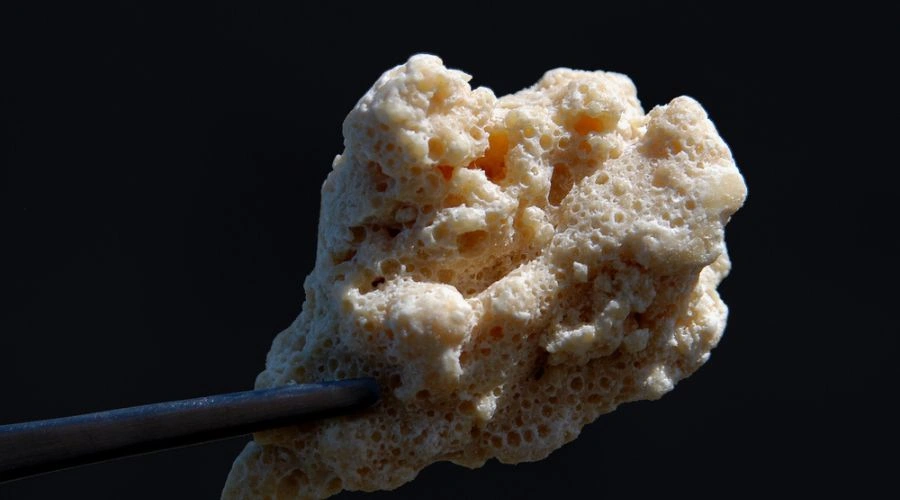Recognize the Smell of Crack Cocaine and Get a Loved One Help
What if you believe that someone you know is using crack cocaine? Whether it’s a partner, family member, or friend, you probably know something is off and are rightfully concerned. Still, it can be tough to identify drug use or, in some cases, the type of drug someone is using.
Crack has a distinct smell, or a variety of smells, associated with it. The ability to identify the scent of crack cocaine might just be the first step toward getting your loved one the help they need.
So, what does crack smell like when smoked? What else should you know?
This article will cover what crack smoke smells like and other possible signs of crack cocaine use.
We’ll also talk about understanding cocaine addiction and the treatment options at Ingrained Recovery in Georgia.
What Does Crack Cocaine Smell Like When it Leaves an Odor After Use?
Usually, crack cocaine has a strong, chemical odor with a tinge of sweetness. To some, it smells like burning plastic or burning rubber. Crack can also smell like rotten eggs or sulfuric acid. Typically, the scent and chemical smell of the highly addictive drug lingers somewhat after a person smokes it.
As with the smell of fentanyl when smoked, the scent of burning crack can depend on cutting agents and even the method of smoking.
Unlike the telltale marijuana smell, the synthetic and often somewhat sweet smell of crack does not have this level of distinct odor, but can still be identified. Read on to learn more.
Get Proven Detox and Rehab Options
Find Help At Ingrained Recovery
What Factors Affect the Smell of Crack Cocaine Smoke?
Several factors can affect the smell of crack when smoked. These include:
- The method of production (how it is made and the tools used to make it).
- The additives or cutting agents it contains.
- The type of device used to smoke crack.
Powder cocaine usually has a milder smell, even when this form of the coca plant is burnt with the goal of smoking. On the other hand, to make crack cocaine, people mix baking soda or ammonia with cocaine to form solid “rocks.”
This can add to the ‘burnt plastic’ aroma, and is one of the main reasons that the smell of powder cocaine vs. crack cocaine is not the same.
Tips for Loved Ones on Identifying Crack Cocaine Use

Aside from the scent of crack, there are additional ways to identify possible crack cocaine use in someone you know. These include, but aren’t limited to:
- Changes in behavior and mental health. For example, bursts of energy, an increased need for privacy or secrecy, anxiety, aggression, irritability, being uncharacteristically irresponsible, mood swings, euphoria, restlessness, and impulsivity.
- Changes in physical appearance. A loved one using crack cocaine may start to neglect personal hygiene or self-care. Rapid weight loss, excessive sweating, and dilated pupils could also be signs.
- Insomnia or a decreased need for sleep. Your loved one may sleep less or very little during a cocaine binge or active use of the drug.
- Drug paraphernalia. You might find a crack pipe or makeshift smoking devices in your loved one’s possession.
People who use crack might show other signs, too. For example, withdrawal symptoms may occur when the person who is used to using the drug does not consume it.
How Does a Crack Cocaine Addiction Develop?
Cocaine is an addictive stimulant drug. People start using stimulants (also known as “uppers”) like crack cocaine for different reasons. For example, to stay awake during long shifts at work, for weight loss, or as a party drug.
Someone might choose to use crack cocaine specifically for reasons such as:
- Cost. Crack cocaine is cheaper to produce than powder cocaine, so it sells for less money.
- Potency. Crack is more potent than powder cocaine–way more potent.
If cocaine or crack cocaine is used repeatedly, the brain changes. This includes changes in the reward pathways in the brain, leading to symptoms like negative emotions and trouble experiencing positive feelings when a person who regularly uses cocaine can’t access the drug.
They might start to feel little pleasure from things they used to enjoy, only feeling relief from cocaine.
The Importance of Treatment for Crack Cocaine Abuse

Why is cocaine addiction treatment important? Treatment can reduce your loved one’s risk of new or worsening effects of long-term crack cocaine abuse. For example:
Problems at Work or School
People with substance addictions may have problems at work or school. For example, poor performance or job loss are both associated with substance abuse. Legal and financial problems, which could be long-term, can also occur.
Problems in Interpersonal Relationships
Substance abuse is notorious for straining interpersonal relationships. These can include friendships, family relationships, and romantic partnerships. Ingrained Recovery offers family and couples therapy sessions that help to facilitate relationship repair in addiction recovery.
Physical Health Risks
Health issues like strokes, seizures, and other neurological problems, gastrointestinal damage, chest pain, and inflammation of the heart can be caused by cocaine.
The way someone uses cocaine can affect the physical health risks they encounter when using the drug. Smoking crack cocaine can make conditions like asthma worse and may damage the lungs.
Overdose and Death
Anyone using cocaine is at risk of overdose. The risk of cocaine overdose can increase when it is mixed with another drug, whether intentionally or unintentionally.
This is called polysubstance use. Many people encounter situations where their crack cocaine is mixed with another drug, but they do not know it because it looks the same.
Get Accredited Treatment at Ingrained
Find Help At Ingrained Recovery
How Ingrained Recovery Helps With Crack Cocaine Abuse
We provide individualized treatment plans for addiction in Georgia to help you or your loved one overcome cocaine abuse from a whole-person perspective. To help with cocaine and crack abuse, Ingrained Recovery offers:
- Medical detox. Crack withdrawal can involve various mental and physical health-related symptoms. Our detox program in Georgia will help your loved one get through the crack cocaine withdrawal process as a first step in treatment. Medical staff are present 24/7. Individuals will be given medication, hydration support, and other treatments as needed.
- Residential treatment. The residential treatment program at Ingrained Recovery is highly structured. Your loved one in residential treatment will stay at our center (usually, for around 30-90 days) for intensive therapy and other activities in a drug-free environment.
- Couples rehab. Sometimes, people in a relationship will both have a problem with cocaine addiction or other forms of drug abuse. We offer couples rehab in Georgia that helps people in romantic partnerships overcome addiction together.
We also provide aftercare planning to help clients not just get, but stay, off of crack cocaine after treatment. As your time at Ingrained Recovery comes to an end, we can help you navigate things like finding sober housing, outpatient programs for continued care, and support groups in your area.
Offering Effective Therapies for Cocaine and Crack Abuse

Ingrained Recovery uses a blend of therapies for cocaine abuse when our clients seek professional support for recovery. These may include, but aren’t limited to the following.
- Family therapy sessions. In addition to groups and individual therapy sessions at Ingrained Recovery, our inpatient and outpatient programs for addiction involve family therapy.
- Couples therapy. Similar to family therapy sessions, couples therapy can be an important addition to your treatment if you are in a romantic relationship or if you and your partner are in our couples rehab program.
- Evidence-based treatments. Cognitive behavioral therapy (CBT), trauma therapy, motivational therapies, rational emotive behavioral therapy (REBT), dialectical behavior therapy (DBT), vocational therapy, and 12-step are just some examples of the modalities we might use.
- Holistic treatments. Ingrained Recovery offers equine therapy, exercise therapy, adventure therapy, and a wide range of other holistic treatments.
Ingrained Recovery also offers services like case management that can be helpful for people overcoming substance abuse. Before your loved one’s discharge date, we will help them make an aftercare and relapse prevention plan to support their ongoing recovery.
Treating Crack Addiction and Co-Occurring Disorders
Many people with cocaine addiction also have an existing mental or behavioral health disorder.
For example, cocaine abuse might coincide with depression or another mental disorder. Even though it’s common to turn to drugs like cocaine to cope with mental health concerns like depression or life stress, it ultimately makes things worse.
Dual-diagnosis treatment is recommended for people with co-occurring disorders. Treating cocaine addiction and other mental health concerns comprehensively can lead to better symptom management of both disorders and other positive outcomes.
As a dual-diagnosis treatment center, Ingrained Recovery is here to help address co-occurring disorders as needed.
Call Ingrained Recovery for Crack Treatment Programs in Georgia

Like other substance use disorders, cocaine addiction is an illness that requires treatment. Getting professional help for cocaine addiction at Ingrained Recovery means that you can get off cocaine with the help of a medical team and build a comprehensive set of recovery skills.
Whether you are looking for cocaine addiction treatment for yourself or a loved one, we’re here for you.
Please call Ingrained Recovery’s confidential admissions line for cocaine detox and inpatient rehab in Georgia today.
Up To 100% of Rehab Covered By Insurance
Find Help At Ingrained Recovery
FAQs About Identifying Drug Smells
What does crack cocaine look like?
In addition to its scent, knowing what cocaine looks like might help you identify the drug. Whereas powder cocaine looks like a fine powder, crack cocaine looks like a white (or slightly yellow-tinted) rock.
What drug smells sweet when smoked?
Though crack doesn’t usually smell sweet–more often, it’s a plastic-y or sulfurous scent–other drugs can. Meth can smell sweet but may also smell like cat urine, a medical office, or like ammonia and plastic, depending largely on how it is made. Painkillers (e.g., Percocet) can also smell sweet when smoked.
What does a smoking joint smell like?
Some people who use crack might use other drugs, too, like marijuana. Smoking a joint (cannabis) usually smells skunk-like or earthy.
What does heroin smell like?
In its pure form, heroin can have no scent. However, it often smells bitter, like vinegar, slightly sweet, or like urine due to production methods.
What drugs make your breath smell?
Different drugs can make your breath smell. Bad breath may be caused by things like decreased saliva production, changes in personal hygiene, or tooth decay resulting from drug abuse.
References
- https://nida.nih.gov/research-topics/cocaine
- https://www.cdc.gov/stop-overdose/caring/polysubstance-use.html
- https://www.nimh.nih.gov/health/topics/substance-use-and-mental-health
- https://www.dea.gov/factsheets/cocaine

